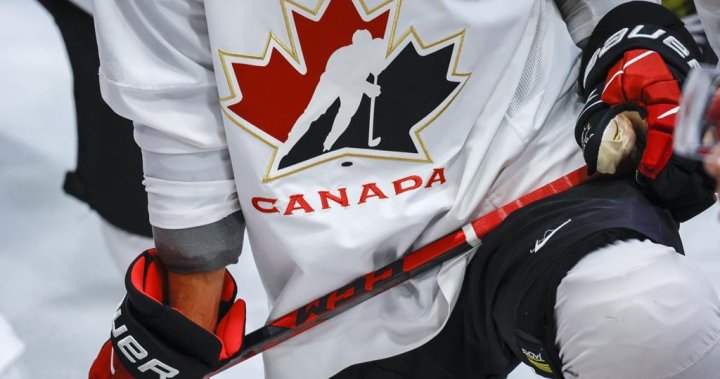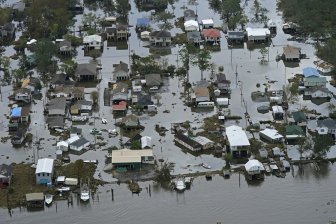When Team Canada plays, the country pays attention.
And right now, all eyes are on London, Ont., where police have charged five members of the 2018 World Junior championship team with sexual assault over allegations stemming from a gala celebration that year involving a then-20-year-old woman.
The charges have not been proven in court. Lawyers for the players (Michael McLeod and Cal Foote with the New Jersey Devils, Calgary Flames forward Dillon Dubé, Philadelphia Flyers goalie Carter Hart and Alex Formenton, who plays in Switzerland) have all said they deny the allegations.
But many Canadians, particularly kids, idolize hockey players, especially those who earn the honour of representing their country.
The focus on the five players’ allegedly criminal conduct raises a very important question: how do you explain the issue to children?
“You want them to not feel like the world is a really scary, overwhelming place all the time,” psychiatrist Dr. Ariel Dalfen said.
When delivering any bad or complicated news to a child, she told Global News, how you do it should depend on how old they are. The more mature they are and the more they can understand, the more details you can tell them, even if those details are “gruesome or scary or concerning,” she said.
She told Global News that if you’re a guardian, it’s important for you to stress that kids can talk to you if something similar happens to them.
When it comes to talking about conduct, whether alleged or proven, by people like athletes or celebrities who the child may look up to, Dalfen said “this can be really crushing news for kids.”
Get the latest National news.
Sent to your email, every day.
“It is really essential to relay the message to kids that even though (people accused of misconduct) are celebrities, even though they are elite athletes and they are professional hockey players, that they are not above the law, that they are not above following the same rules and laws that everyone else follows,” Dalgren said.
“We need to separate the stardom and the fandom from their (alleged) actions. And these (alleged) actions are never OK. Not (from) them, not (from) any other adult, in the hockey world or in your life.”
She said it is crucial for parents to tell their children it is never OK for someone to harm them and to reinforce that their child can speak to them if the kid ever sees or experiences any inappropriate behaviour.
“It’s really important to have these conversations with girls to know that, even though someone may be a professional athlete, they may be good looking, they may be really successful and wealthy, (that) they still have the power to decline any sexual activity that they do not want to engage in,” she said.
“It’s essential that girls, young girls, teenage girls, really feel that the society and structures in society has their back if they need to speak out.”
“Research tells us that having these conversations early and often can really help even kids as young as five understand behaviours that are inappropriate and how to speak up,” the U.S. Center for SafeSport’s Hilary Nemchik told Global News.
The Center investigates abuse and misconduct allegations in the United States and designs policies to prevent it.
When asked for an example of how to raise the topic with a child, Dalfen said she would ask a hypothetical child if they have heard anything about the situation at hand or in the news.
If they have heard about the situation, the parent should then ask if their child has any questions. That can guide the rest of the conversation.
Dalfen, speaking from Toronto, said parents need to use basic terminology when speaking to children, based on their age. Dalfen said parents should also watch for changes in the child’s behaviour, like if they stop playing hockey or another sport or activity that may be connected with the allegations at hand, or if they’re not sleeping or eating.
Those changes could mean the young fan isn’t coping well.
A parent should ask them about the changes. If the child doesn’t revert to type in a few weeks, Dalfen said the parent should take their kid to a doctor or therapist.
Education promotes safety, Nemchik said, and can lay foundations for talking about other kinds of difficult conversations, like abuse.
“What always strikes me as a mom is that this abuse (against children) is most often perpetrated by someone known and trusted to the family,” Nemchik said.
“So these conversations are critical.”
A 2022 Statistics Canada report found about three in 10 Canadians over the age of 15 experienced childhood victimization.
One in four Canadians experienced at least one type of physical abuse in childhood, the report states, while one in 10 Canadians suffered sexual abuse before that age.
A majority of those who were sexually abused say the perpetrator of the most serious incident “was another adult other than a parent or step-parent.”
Nemchik said organizations need strong guidelines to ensure proper education, accountability and reporting.
“Parents should ask what policies are in place,” she said.
“Are there policies regarding communications, specifically one-on-one communications between adults and minors?” she said, saying that all interactions between adults and minor athletes should be “observable and interruptible.”
© 2024 Global News, a division of Corus Entertainment Inc.










